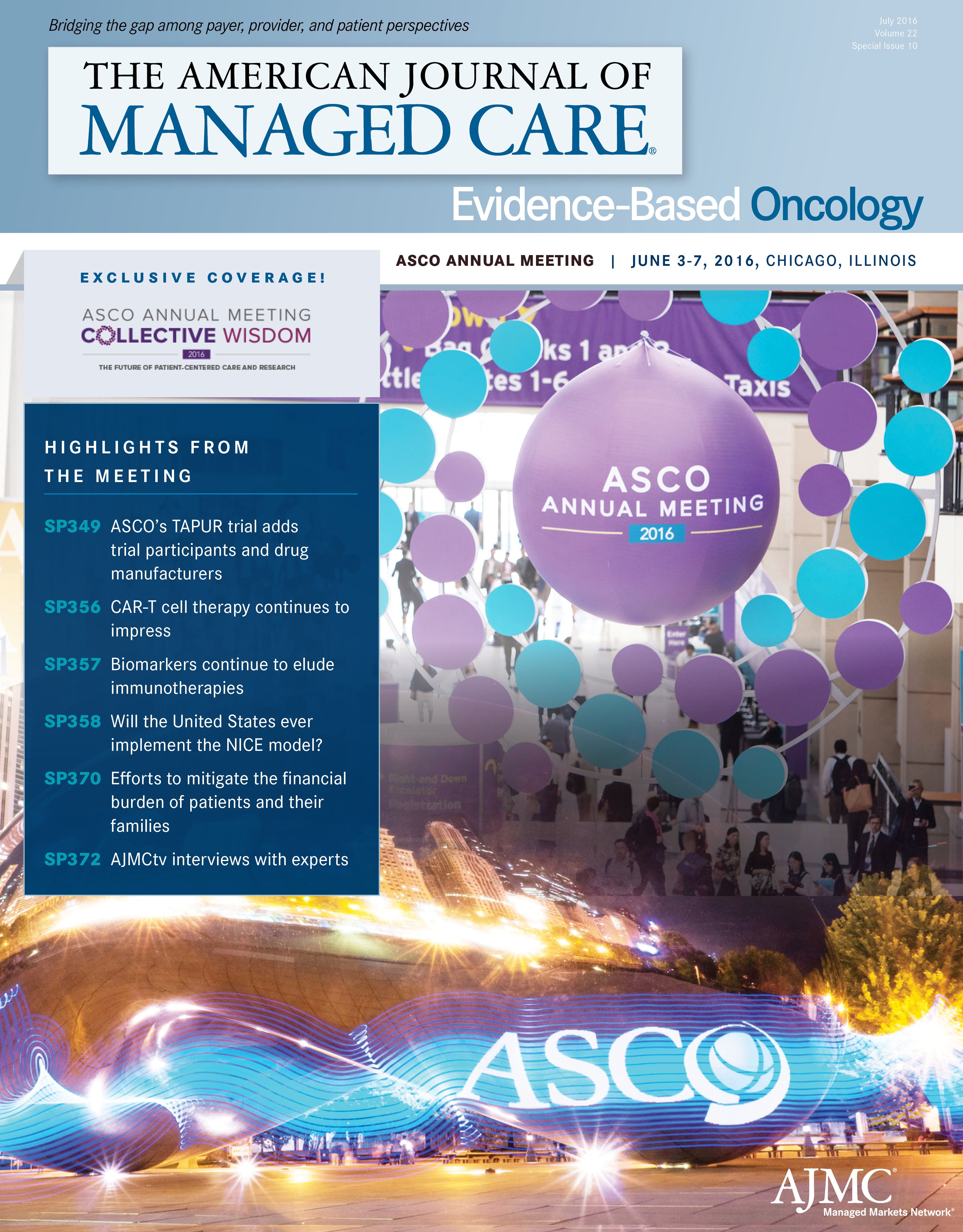- Center on Health Equity & Access
- Clinical
- Health Care Cost
- Health Care Delivery
- Insurance
- Policy
- Technology
- Value-Based Care
Web App Boosts Survival for Lung Cancer Patients
Patients with lung cancer who participated in a Web-based system for reporting and tracking their symptoms achieved dramatic gains in survival compared with individuals who were followed with typical protocols, according to a study presented at the annual meeting of the American Society of Clinical Oncology.
Patients with lung cancer who participated in a Web-based system for reporting and tracking their symptoms achieved dramatic gains in survival compared with individuals who were followed with typical protocols, according to study results presented at the 2016 annual meeting of the American Society of Clinical Oncology (ASCO).
The MoovCare system made a difference for patients because it resulted in early detection of dangerous conditions or recurrences, resulting in healthier individuals who were better able to undergo optimal therapy and earlier supportive care that improved their quality of life, said lead study author Fabrice Denis, MD, PhD, during an ASCO press cast. The median overall survival (OS) rate for patients who used the MoovCare system was 19 months compared with 12 months for participants in the control group (HR, 0.325; P = .0025), after 20 months of follow-up. Additionally, 75% of the patients followed through MoovCare were still alive at 1 year versus 49% with standard procedures.
There also was a 50% reduction in the average number of imaging tests per patient per year with the use of the app, said Denis, a researcher at the Institut Interrégional de Cancérologie Jean Bernard in Le Mans, France. These improvements were achieved even though the relapse rates were similar for both groups: 49% among those who used the app and 51% among those with typical follow-up, researchers reported. However, performance scores stayed higher among patients who used MoovCare. As a result, 74% of these patients were able to undergo optimal therapy upon relapse compared with 33% who had not used the app (P<.001).
The complete article can be accessed here: http://bit.ly/2ae60kD.
Anita T. Shaffer is the managing editor of OncologyLive.

Quality of Life: The Pending Outcome in Idiopathic Pulmonary Fibrosis
February 6th 2026Because evidence gaps in idiopathic pulmonary fibrosis research hinder demonstration of antifibrotic therapies’ impact on patient quality of life (QOL), integrating validated health-related QOL measures into trials is urgently needed.
Read More
